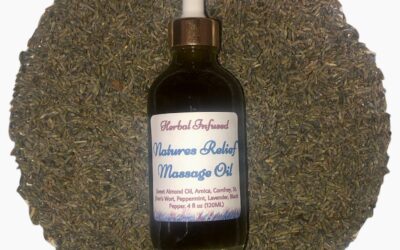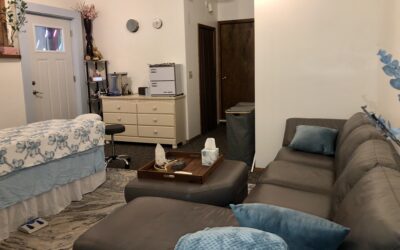Anxiety and anxiety disorders have become increasingly prevalent in our society, affecting millions of people worldwide. The impact of anxiety can be debilitating, affecting both mental and physical well-being. While there are various treatment options available, one approach that has shown promise in managing anxiety is massage therapy. In this comprehensive guide, we will explore what anxiety is, its effects on the body, and how massage therapy can be a beneficial tool in alleviating symptoms and promoting overall well-being.
What is Anxiety?
Anxiety is more than just feeling occasional worry or stress. It is a persistent and excessive feeling of fear, restlessness, and anticipation of future threats. Anxiety disorders can manifest in different forms, such as generalized anxiety disorder, social anxiety, specific phobias, and panic disorder. These conditions can significantly impact a person’s daily life, making it difficult to cope with everyday tasks and activities.
The Effects of Anxiety on the Body
When we experience anxiety, our bodies activate the stress response, also known as the “fight or flight” response. This response triggers various physiological changes, including increased heart rate, rapid breathing, and muscle tension. Prolonged activation of the stress response can have detrimental effects on our overall health, increasing the risk of heart problems, digestive issues, and weight gain.
The Benefits of Massage Therapy for Anxiety
Massage therapy has long been recognized for its ability to induce relaxation and reduce muscle tension. However, its benefits extend beyond physical relief. Numerous studies have shown that massage therapy can effectively reduce anxiety levels and promote a sense of calm and well-being. The mechanisms behind these benefits involve changes in brain activity, decreased cortisol levels (the stress hormone), and increased activity of the parasympathetic nervous system, which helps regulate the body’s stress response.
The Science Behind Massage Therapy for Anxiety
Research has shown that massage therapy can produce measurable changes in brain activity, specifically in areas involved in regulating emotions and stress response. These changes contribute to a decrease in anxiety levels and an overall sense of relaxation. Additionally, massage therapy helps to reduce cortisol levels, which are often elevated in individuals experiencing stress, anxiety, and depression. By alleviating muscle tension and promoting lymphatic drainage, massage therapy can also enhance the body’s natural healing processes and improve overall well-being.
Types of Massages for Anxiety
There are various types of massages that can be beneficial for managing anxiety. The choice of massage technique depends on individual preferences and specific needs. Some common types of massages include:
- Swedish Massage: This gentle and relaxing full-body massage aims to promote overall well-being and release tension within the body.
- Deep Tissue Massage: This technique targets deeper layers of muscle and connective tissue to relieve chronic muscle tension and promote relaxation.
- Aromatherapy Massage: Combining the benefits of massage with the use of essential oils, this type of massage enhances relaxation and promotes a sense of calm.
- Shiatsu Massage: Originating from Japan, this massage technique involves applying pressure to specific points on the body to relieve tension and improve energy flow.
- Thai Massage: This active form of massage combines stretching and acupressure techniques to reduce pain and stress while promoting flexibility and relaxation.
- Chinese Massage: Incorporating both Western remedial massage techniques and elements of reflexology, Chinese massage focuses on promoting the flow of energy throughout the body.
How Often Should You Get a Massage for Anxiety?
The frequency of massage therapy sessions for anxiety management varies depending on individual needs and preferences. While there are no strict rules, it is generally recommended to start with regular sessions, such as once a week, to gauge the effects on anxiety symptoms. Over time, you can adjust the frequency based on your response to the treatments. Some individuals may find that one session every two weeks is sufficient, while others may benefit from more frequent massages. It is essential to listen to your body and work with a licensed massage therapist to determine the optimal frequency for your specific needs.
Incorporating Massage Therapy into Your Anxiety Management Plan
Massage therapy should be seen as a complementary approach to anxiety management, rather than a standalone treatment. It is crucial to integrate massage therapy with other strategies, such as psychotherapy, medication, and lifestyle changes, to effectively manage anxiety. Engaging in regular exercise, practicing mindfulness and relaxation techniques, and adopting a healthy lifestyle can further enhance the benefits of massage therapy in reducing anxiety.
The Importance of Seeking Professional Massage Therapy
While self-massage techniques and at-home devices can provide temporary relief, professional massage therapy offers a more comprehensive approach to anxiety management. Licensed massage therapists have the expertise and training to tailor treatments to your specific needs, ensuring that you receive the maximum benefits from each session. Additionally, professional massage therapy provides a safe and nurturing environment for relaxation, allowing you to fully unwind and experience the healing benefits of touch.
Anxiety can have a profound impact on our well-being, affecting both our mental and physical health. Incorporating massage therapy into an anxiety management plan can be a valuable tool in reducing symptoms and promoting relaxation and overall well-being. By understanding the science behind massage therapy, exploring different massage techniques, and determining the optimal frequency for sessions, individuals can take an active role in managing their anxiety and improving their quality of life.
If you’re interested in experiencing the benefits of professional massage therapy for anxiety, I invite you to book an appointment with me, Licensed Massage Therapist Holly Joy. Together, we can embark on a journey towards healing, relaxation, and a greater sense of well-being.
Please note that massage therapy should not replace professional medical advice or treatment for anxiety disorders. If you are experiencing severe anxiety or have been diagnosed with an anxiety disorder, it is important to consult with a healthcare professional for appropriate treatment.


















